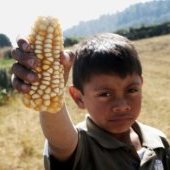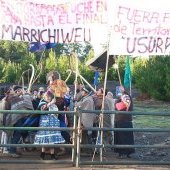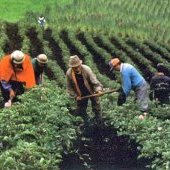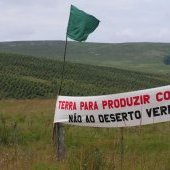2014 Special Broadcasts / Meeting on Large-scale Monocultures in Latin America
There has been an increasing advance of monoculture tree plantations in Latin America in the past decades. There are many reasons for this, but the main one is for the profit of big agribusiness, including biotechnology and financial corporations, as well as corporations manufacturing agroindustrial equipment and agrotoxics. The social and environmental impacts of this expansion are huge, as well as the territorial resistance to this agriculture production model by communities and social movements. It is a model that damages biodiversity and expels people from their ancient territories.
In order to analyze this model, Alianza Biodiversidad, Friends of the Earth Latin America and the Caribbean (ATALC), the World Rainforest Movement (WRM) and the Black Fraternal Organization of Honduras (OFRANEH) are celebrating a "Latin American meeting on Large-scale Monocultures in Latin America: land grabbing and threats to biodversity and food sovereignty" from September 6 to 11 in La Ceiba, Honduras. This coverage has been made joint with the Alianza por la Biodiversidad.
-
31 October 2014 | Interviews | Meeting on Large-scale Monocultures in Latin America | Land grabbing

"Peasants are the strongest cell of resistance against any type of capital advance".
Even for a country as large as Brazil, the figures related to monoculture production are extremely high. The total surface area destined for agricultural production in the country amounts to 71 million hectares. Of these, between 30 and 31 million hectares are planted with soy, 15 million with maize and almost 10 million with sugarcane, according to data provided by the Brazilian Geography and Statistics Institute (IBGE). Read more
-
29 October 2014 | Interviews | Meeting on Large-scale Monocultures in Latin America | Land grabbing

Resistance in Mexico against plans of transnational corporations to advance GM monoculture plantations in the country
There are many types of monoculture plantations in Mexico, including sugarcane and oil palm, which cause important impacts at socioenvironmental level. However, one of the main threats faced by the Mexican people is GM maize, said Evangelina Nuñez of the Collective for Autonomy and the Network in Defense of Maize, in an interview conducted during the "Latin American Meeting on Large-Scale Monoculture Plantations: Land Grabbing and Threats to Biodiversity and Food Sovereignty". Read more
-
15 October 2014 | Interviews | Meeting on Large-scale Monocultures in Latin America | Land grabbing | Social activists at risk

The cellulose-forestry model and plundering of the Mapuche people
The history of industrial tree monoculture plantations in Chile includes all the negative elements that feature these production models in Latin America: land grabbing, corporate capture of the State, loss of biodiversity, plundering and displacement of native communities. Another of these common features is that the opening of these businesses took place under dictatorships. In 1974, a year after staging a coup in the country, Augusto Pinochet passed Decree Law 701 aiming to promote the development of forestry in the Andean country. Read more
-
9 October 2014 | Interviews | Meeting on Large-scale Monocultures in Latin America | Land grabbing

The curse of abundance: Interview with Nathalia Bonilla (Acción Ecológica) about the deepening of the extractivist model in Ecuador
Since 2008, the Ecuadorian government has been developing a series of initiatives to establish a policy for agrofuel production in the country , with the financial support of USAID. Nathalia Bonilla, member of the organization Acción Ecológica talked about the reasons behind these initiatives, the mechanisms used, the consequences it implies in socioeconomic and environmental terms for rural and indigenous communities of the country, and the meaning of the implementation of the monoculture model for the political sovereignty of the country. Read more
-
8 October 2014 | Interviews | Meeting on Large-scale Monocultures in Latin America | Land grabbing

Green deserts in Latin America: Interview with the coordinator of the World Rainforest Movement
Several decades have passed since the first tree monoculture plantations were established in Latin America. The features of their establishment seem to be the same in the new countries of the region where this production model is advancing. In this interview with Winnie Overbeek, international coordinator of WRM (The World Rainforest Movement), we talked about the ways these monoculture plantations are being imposed, their socioenvironmental consequences and the new ways in which these crops continue to advance on the continent. Read more







